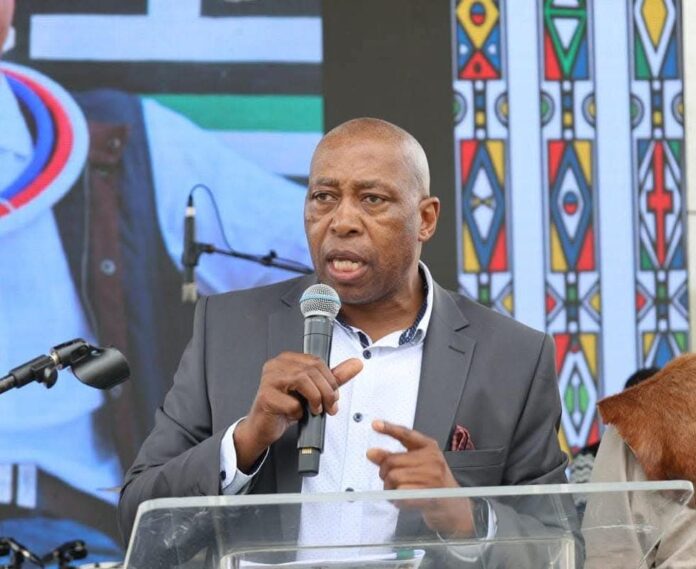Second-in-charge in the ANC’s provincial executive committee in Mpumalanga, Speedy Mashilo, nearly lost his cool this week when he was forced to teach MKP lawmakers that labelling ladies of the night “prostitutes” is politically incorrect.
Mashilo, who also serves as MEC for cooperative governance, human settlements and traditional affairs, delivered the rebuke during a fiery sitting of the Mpumalanga Provincial Legislature, with deputy Speaker Sam Masango presiding.
MKP lawmaker Pekky Shongwe’s sin was to raise a motion on the infamous Anderson Street in Mbombela — a place where the world’s oldest profession has survived for decades, just a minute away from the main police station.
The haunt of all men
This street has hosted multitudes of men from various walks of life, including politicians, government officials and private sector workers.
“The area has become a hotbed of illicit activities, including mugging, pick-pocketing, drug abuse and prostitution,” Shongwe said. “The residents of Mbombela and visitors alike are forever at risk in the street called Anderson.”
His mention of Anderson Street drew laughter from Masango and other lawmakers.
Shongwe said lack of police visibility on the street gave rise to Nyaope sale and abuse. He stated that prostitution was the main activity that has brought chaos to the city.
“The prostitution happens just a street away from the local police station. As uMkhonto weSizwe Party, we want to urge the authorities to take immediate action [to] address the situation,” he said.
Mind your language
But Mashilo, who was responding as leader of government business, found Shongwe’s choice of words insensitive.
“I’m told that when you say prostitution, you are insulting,” he warned. “They are not prostitutes — they are sex workers. Some of you are the clients, or you are potential clients.”
Gasps and giggles mixed across the floor before Mashilo softened his stance, acknowledging the social and economic desperation that drives women to Anderson Street.
“Some other things create crime,” he said. “While we acknowledge there is unemployment, equally government [is] assisting. The R350 [social relief of distress grant] as well as the resources given to the kids, etcetera, is an attempt to mitigate the problem [because] taking that route is an extreme.”
He promised that community safety, security and liaison MEC Jackie Macie would address policing concerns raised by the MK Party.
Anderson Street has long been the province’s moral battleground. In March last year, the ANC Youth League marched there, branding it a “street of shame.” Two months ago, Mbombela Municipality announced a R7-million plan to install CCTV cameras and boost security.
Still, after every police raid, the night returns — neon lights flicker, whispers rise, and the trade continues.
Sex work is not a crime
During Women’s Month, EFF leader Julius Malema reignited the debate at a national level, urging decriminalisation of sex work and accusing police of exploiting and violating the same women they arrest.
The fiery exchange in the legislature comes as the Sex Workers Education and Advocacy Taskforce (SWEAT) pursues a landmark High Court case to have South Africa’s criminalisation of sex work declared unconstitutional. SWEAT argues the current laws violate rights to dignity, privacy and safety.
The case has drawn wide public interest and prompted the National Director of Public Prosecutions to issue a moratorium on prosecuting sex workers until the matter is finalised — a move hailed by activists as historic.
NPA spokesperson Bulelwa Makeke confirmed the moratorium on prosecutions. “That is indeed the position that the NPA has adopted.”




